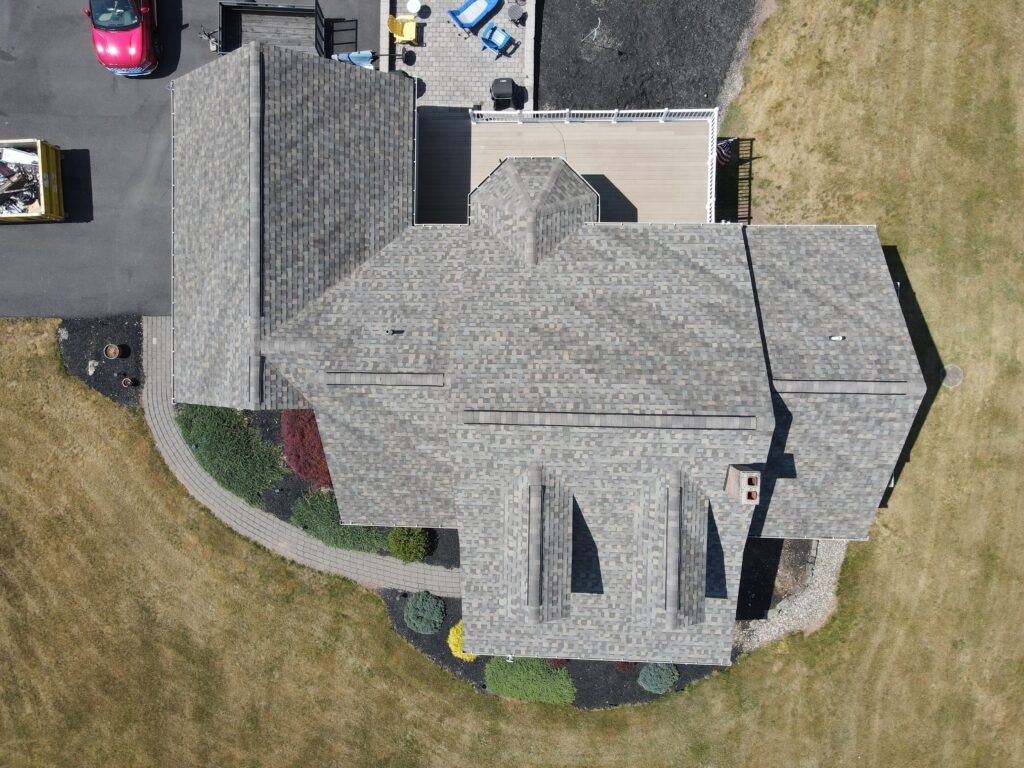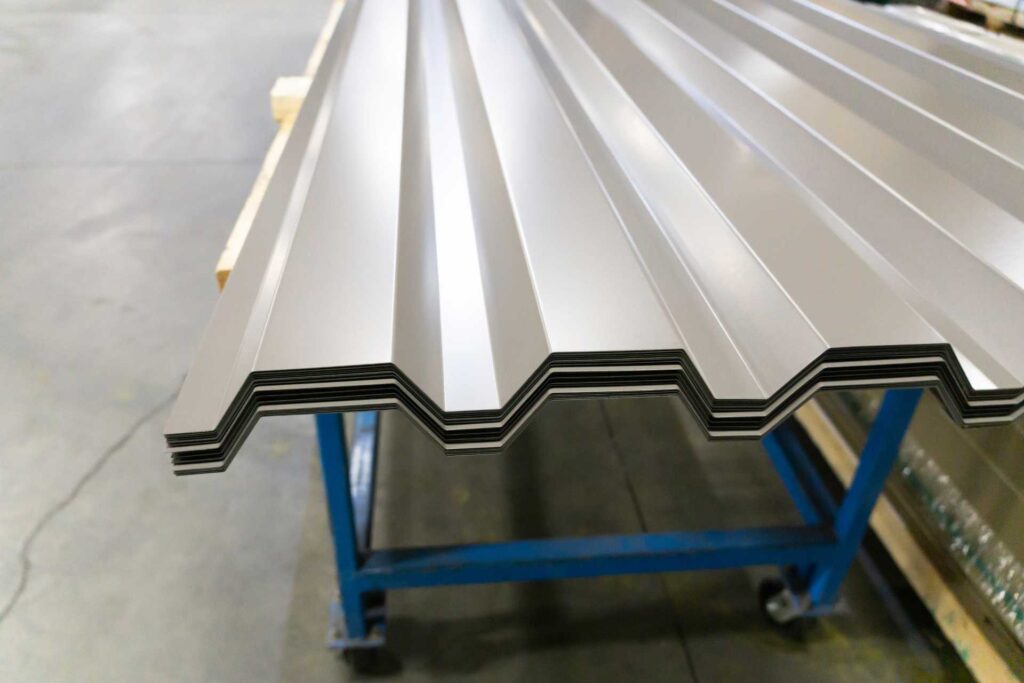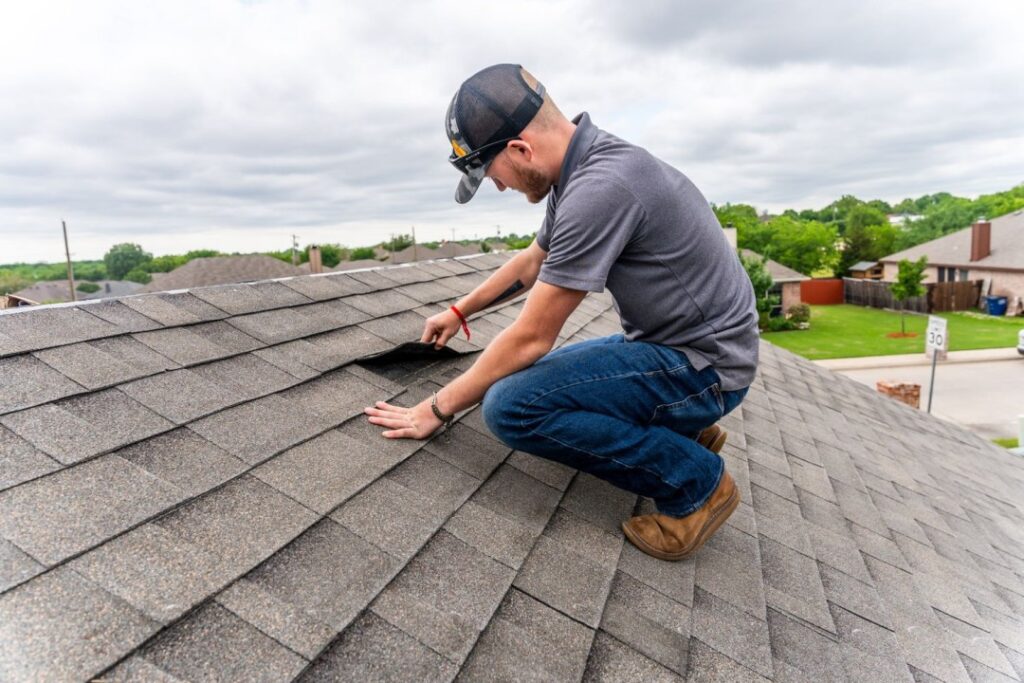When planning to install a metal roof on your home, one of the most important decisions you will make is choosing the right gauge.
A roof’s gauge refers to its thickness, which is important in determining its durability, cost, and efficiency.
The short answer is that 24 to 29-gauge metal roofing is typically used for residential homes, but the perfect choice depends on your climate, roof design, and budget.
In this article, we’ll explore everything you need to know about metal roof gauges, why they matter, and how to choose the right option for your home.
What Does “Gauge” Mean in Metal Roofing?
It is essential to understand what gauge means before deciding which gauge is the best.
In metal roofing, the gauge represents the thickness of the metal sheet. It’s measured inversely, meaning a lower number means thicker metal.
For instance, 22-gauge metal is significantly thicker than 29-gauge, even though it might initially seem the opposite.
This measurement directly impacts the performance of your roof under stress. Thick metal is stronger, more resistant to extreme weather, and better able to handle heavy loads like snow.
While thinner metals are lighter and more cost-effective, it may not be as durable in harsh conditions but are ideal in milder climates.
Why Does the Gauge of Your Metal Roof Matter?
Gauge affects several critical aspects of your roof’s performance, including durability, weight, and cost. In areas where extreme weather conditions, such as hail or heavy snow, are prevalent, thicker panels (lower gauge) offer better protection. Due to their low chance of denting, warping, or sustained damage, it is a great choice for long-term use.
However, thinner panels (higher gauge) are lighter, easier to install, and less expensive. It can be a practical and cost-effective option for homes in mild climates.
The key is to determine what your roof will have to endure, and then select a gauge that meets those requirements.
22-Gauge Metal Roofing
The thickest residential roofing option, 22-gauge metal, offers unmatched durability. Moreover, this product is ideal for homes that are exposed to extreme weather conditions, such as heavy snowfall, strong winds, or hailstorms.
This extra thickness ensures that your roof will last for decades with minimal maintenance due to its superior resistance to dents and damage.
Due to the increased material costs, 22-gauge panels are more expensive. Additionally, they are heavier, which can pose a risk to the structural integrity of your home.
Although this gauge does not necessarily need to be installed in every home, it is a reliable option for homeowners who prioritize long-term performance and durability.
24-Gauge Metal Roofing
The 24-gauge metal gauge is one of the most widely used gauges for residential and light commercial applications due to its balance between strength and cost. In addition to offering excellent weather resistance, it is lighter and more affordable than 22-gauge steel.
Those who live in areas with moderate to severe weather often choose 24-gauge roofing due to its durability and longevity.
It is also less susceptible to “oil canning,” a condition in which the metal surface appears wavy or distorted over time. A 24-gauge roof is aesthetically pleasing and practical for standing seam or corrugated metal.
26-Gauge Metal Roofing
It is recommended that 26-gauge metal be used for the majority of residential homes. Due to its durability, lightweight design, and budget-friendly price, it can withstand daily wear and tear, such as mild hail and wind.
In regions with average weather conditions, where extreme durability is not a top priority, this gauge is particularly popular.
In some cases, 26-gauge panels may exhibit oil canning if they are not installed correctly. For homeowners looking for a balance between performance and cost, 26-gauge metal roofing is an affordable and reliable option.
29-Gauge Metal Roofing
29-gauge roofing panels are lightweight and cost-effective, being the thinnest metal used for residential roofing.
It’s more popular among budget-conscious homeowners who live in climates with mild winters and mild summers. However, it is more susceptible to denting and may not hold up as well in regions with frequent hail, snow, or high winds.
24-Gauge Vs. 26-Gauge Metal Roofing Thickness
Research shows that the thicker 24-gauge metal roofing is more durable than 26-gauge panels.
24-gauge is more resistant to harsh weather conditions, but is the more expensive option. 26-gauge is thinner, lighter, and cheaper, making it better suited for homes in mild climates.
For areas with strong winds or heavy snow, 24-gauge is best. For lighter needs, 26-gauge is an acceptable option.
Standing Seam vs Corrugated Metal Roofing
With concealed fasteners and sleek, vertical panels, standing seam roofing offers enhanced durability.
The wavy panels of corrugated metal roofing have exposed fasteners and are known for their affordability.
Standing seam is weather-resistant, whereas corrugated is budget-friendly. The option you go with depends on your style and cost preferences.
Factors to Consider
Here’s how to make the best choice based on your climate, roof design, and structural considerations:
-
Climate Conditions
- The best option is to choose thicker panels like 22- or 24-gauge if you live in a region subject to heavy snow, hailstorms, or high winds.
- Thick panels are more resistant to dents, punctures, and weather-related wear, which ensures long-term performance.
- Conversely, thinner panels, such as 26- or 29-gauge, are more preferred in regions with milder climates, providing reliable, less expensive protection.
-
Roof Design
- The design of your roof also plays a role in determining the right gauge. Roofing systems with steeper pitches, which naturally shed water and snow more quickly, are better suited for thin panels due to the reduced risk of pooling or accumulation of water.
- Flat or low-slope roofs are more prone to water pooling and require thicker metal to prevent leaks.
-
Structural Strength of Your Home
- Some homes are not designed to handle the additional weight of thicker metal panels. In older homes or homes with weaker structural frameworks, heavy materials such as 22-gauge metal may be difficult to support.
- Thinner panels might be the safer and more practical option if your home has structural limitations.
Are Thicker Panels Always Better?
Not necessarily. In spite of the fact that thicker panels provide greater protection and tend to last longer, they may not be suitable for every home.
There are thin panels, such as 29 gauge, that can be used on steep-sloped roofs in mild climates.
To make an informed decision, consider your home’s specific needs rather than assuming thicker is better.
Final Thoughts
Gauge selection is influenced by a number of factors, including climate, budget, and long-term goals. In most cases, 24- or 26-gauge panels offer the perfect balance between cost and performance.
A 22-gauge metal roof is recommended if you live in an area that experiences extreme weather conditions. If you live in a mild climate or have a limited budget, 29-gauge metal is an excellent choice.
Ensure you have assessed your needs and consulted with a roofing professional before making your selection.
The right metal roof will not only protect your residence, but also provide energy efficiency, aesthetic appeal, and peace of mind for many years to come.







